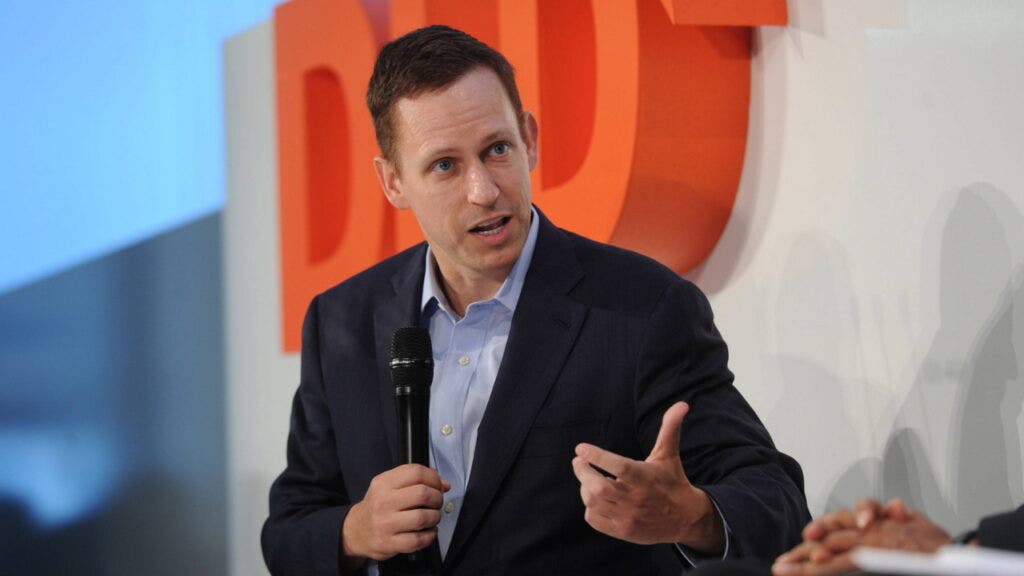The Imperative of Embracing AI: Insights from Peter Thiel’s Investment in Crusoe
In a rapidly evolving technological landscape, the role of artificial intelligence (AI) is becoming increasingly pivotal. Billionaire venture capitalist Peter Thiel’s recent investment of $600 million into Crusoe, a company specializing in sustainable computing solutions, has sparked renewed discussions about the potential and perils of AI. Thiel’s remarks highlight not just a financial commitment but a clarion call for the tech industry to fully embrace AI’s transformative capabilities. This article delves into Thiel’s warnings, the implications of his investment, and the broader narrative surrounding AI in the contemporary world.
The Landscape of AI Investment
The global race to harness AI technologies is intensifying, with major players across various sectors recognizing its potential to revolutionize industries. Investments in AI startups and research have surged, with venture capitalists pouring billions into innovative companies that promise to push the boundaries of what technology can achieve. Thiel, a co-founder of PayPal and Palantir, is known for his contrarian views and prescient investments, making his support for Crusoe particularly noteworthy.
Understanding Crusoe’s Mission
Crusoe is at the forefront of a movement aimed at leveraging AI while addressing environmental concerns. The company focuses on utilizing surplus energy to power data centers, thus promoting sustainable practices in the tech industry. By marrying AI with eco-friendly initiatives, Crusoe embodies the dual mandate of fostering innovation while being mindful of the planet.
Thiel’s investment signals a recognition that the future of AI is not only about technological advancements but also about how these advancements can align with sustainable practices. He emphasizes the urgency of innovation, warning against the complacency that can arise from underestimating AI’s potential impact.
The Dangers of Underestimating AI
Thiel’s cautionary stance stems from his belief that AI possesses the potential to fundamentally alter societal structures, economic frameworks, and even geopolitical landscapes. The risks of underestimating AI include:
- Economic Disruption: As AI technologies become more integrated into various sectors, traditional jobs may become obsolete, leading to significant economic upheaval.
- Ethical Concerns: The deployment of AI raises ethical questions, particularly regarding bias, privacy, and accountability. Failing to address these issues can lead to widespread societal consequences.
- Geopolitical Imbalance: Nations that lead in AI development may gain significant advantages over others, potentially fueling global tensions and inequalities.
Thiel’s investment in Crusoe is a recognition that the future of AI must be approached with both optimism and caution. By supporting companies that prioritize sustainability alongside technological advancement, he advocates for a balanced approach to innovation.
The Broader Implications of AI Adoption
Thiel’s insights echo a growing consensus among thought leaders that AI’s potential must be harnessed responsibly. The implications of widespread AI adoption extend beyond immediate technological advancements, prompting discussions about:
1. The Role of Government Regulation
As AI technologies proliferate, the call for regulatory frameworks becomes increasingly urgent. Governments worldwide are grappling with how to create policies that encourage innovation while safeguarding public interests. Thiel’s investment underscores the need for a collaborative approach where tech leaders and policymakers work together to create guidelines that promote ethical AI development.
2. The Need for Workforce Transformation
The rise of AI necessitates a reevaluation of workforce skills. As routine tasks become automated, there is a pressing need for reskilling and upskilling initiatives to prepare workers for the new economy. Thiel’s emphasis on innovation includes a call for educational institutions and corporations to adapt to the changing landscape of employment.
3. The Ethical Landscape
AI’s integration into everyday life raises ethical dilemmas that cannot be overlooked. Issues related to data privacy, algorithmic bias, and the implications of AI decision-making are critical discussions that must be addressed. Thiel’s focus on responsible AI development suggests a pathway towards creating systems that are both effective and equitable.
Exploring Alternatives and Innovations
While Thiel’s investment in Crusoe reflects a commitment to AI and sustainability, it also invites exploration of alternative innovations in the tech sphere. Other companies are exploring various avenues that complement AI development, including:
- Decentralized Technologies: Blockchain and decentralized networks are being harnessed to create transparent systems that can mitigate some of the ethical concerns associated with AI.
- AI Ethics Organizations: Initiatives aimed at promoting ethical considerations in AI development are gaining traction, with organizations advocating for best practices and accountability.
- Collaborative AI: Innovations that focus on human-AI collaboration are emerging, promoting systems where AI augments human capabilities rather than replacing them.
The Road Ahead
As the tech landscape continues to evolve, Peter Thiel’s investment in Crusoe serves as a pivotal moment, highlighting the critical intersection of AI, sustainability, and ethical responsibility. The call to embrace AI’s potential is not merely about technological advancement; it is a broader invitation to consider how these advancements can coexist with societal values and environmental stewardship.
Moving forward, it is essential for stakeholders across the board—investors, entrepreneurs, policymakers, and the public—to engage in conversations about the future of AI. Embracing innovation while being mindful of its implications is vital for shaping a future where technology serves humanity positively.
Conclusion
Peter Thiel’s warnings regarding the underestimation of AI’s potential resonate deeply in today’s socio-economic climate. His substantial investment in Crusoe not only reflects a belief in the transformative power of AI but also serves as a reminder of the responsibilities that come with such advancements. As we navigate the complexities of AI integration into our lives, it is imperative to prioritize sustainable and ethical approaches that ensure technology benefits all of society.
See more Future Tech Daily

